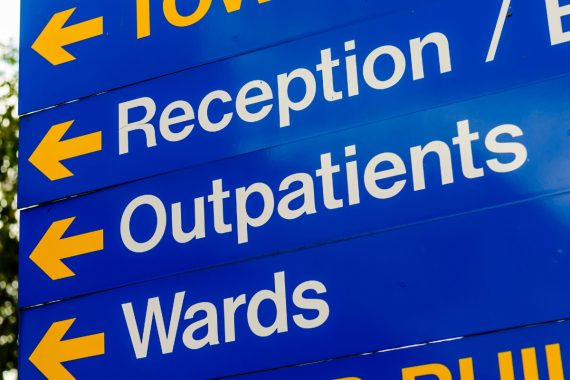The number of patients waiting to start treatment after referral to a specialist grew to 6.4 million in March, the latest figures from NHS England show.
It is a new record for the waiting list which was 6.2 million the previous month but the numbers with the longest waits have fallen, NHS England said.
The number waiting more than two years for elective treatment fell by 6,500 between February and March and the number of those waiting more than 18 months fells by 5,700.
Increasing numbers of patients coming forward for care after the pandemic meant 1.78 million people were referred and more than 2 million diagnostic tests done.
Cancer referrals also reached their highest month on record with 253,796 cancer checks done.
Emergency departments experienced the busiest April on record albeit an improvement on the four-hour target from 71.6% to 72.3%.
But there was a new high of 24,138 people had to wait more than 12 hours in A&E after a decision to admit them. Bed capacity is at 94%, and more than 12,500 patients a day remain in hospital when they are fit for discharge, NHS England said.
It follows an admission from NHS England that plans for this year’s 10% increased elective activity target are to be mainly achieved through increased GP advice and guidance (A&G).
In February, the Government set out its long-awaited elective recovery plan which stressed that GPs’ role in tackling the NHS hospital backlog will focus on the use of A&G to try to avoid ‘unnecessary’ referrals to secondary care.
But Government auditors have warned against ‘overloading’ GPs in clearing the elective backlog.
The Public Accounts Committee has said even if the NHS meets its targets for elective care, 1 million more patients will be on the waiting list posing a ‘huge risk’ to primary care.
Professor Stephen Powis, national medical director for NHS England, said the latest figures showed hard-working teams across the NHS were making good progress in tackling the backlogs that have built up.
‘We always knew the waiting list would initially continue to grow as more people come forward for care who may have held off during the pandemic, but today’s data show the number of people waiting more than two years has fallen for the second month in a row, and the number waiting more than 18 months has gone down for the first time.
‘There is no doubt the NHS still faces pressures, and the latest figures are another reminder of the crucial importance of community and social care, in helping people in hospital leave when they are fit to do so, not just because it is better for them but because it helps free up precious NHS bed space.’
Pulse October survey
Take our July 2025 survey to potentially win £1.000 worth of tokens














